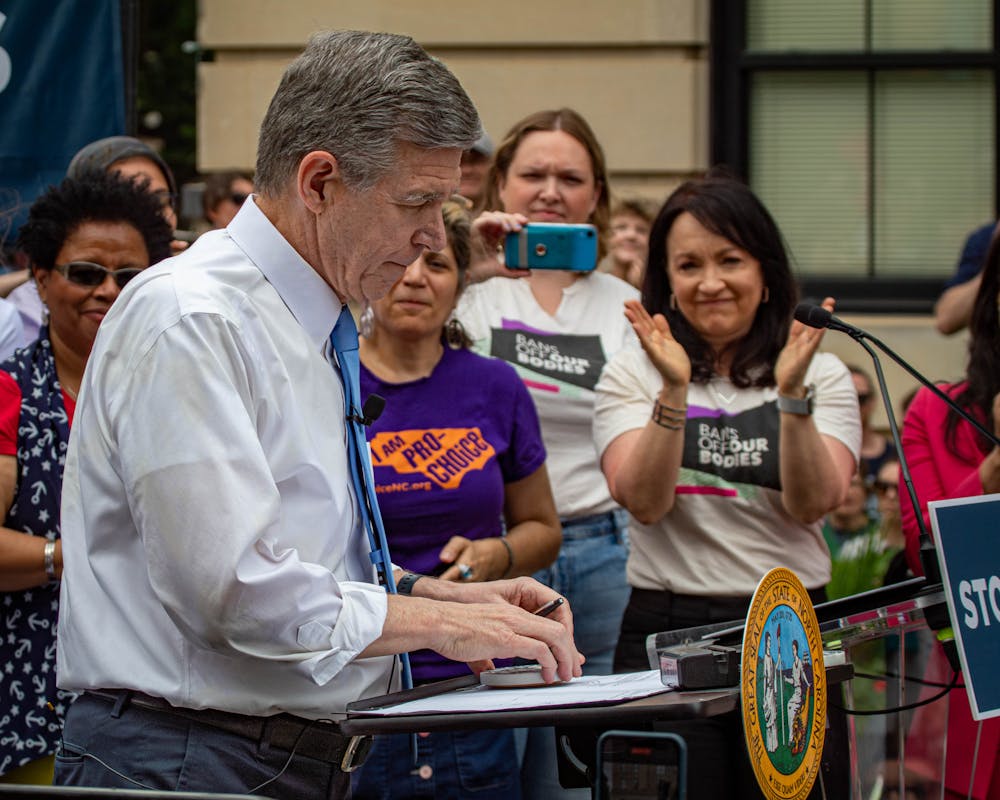North Carolina Gov. Roy Cooper vetoed Senate Bill 20 on May 13 during a rally in Bicentennial Plaza in Raleigh, located mere footsteps from North Carolina’s Legislative Complex and State Capitol. During the rally, Cooper said he is opposed to SB20, and highlighted that both Republican-dominated houses of the General Assembly passed the bill within 48 hours — which some have criticized as reckless.
“Let’s be clear, this bill has nothing to do with making women safer, and everything to do with banning abortion,” Cooper said in a press release.
Cooper’s veto comes with potential roadblocks, as Republican supermajorities in the state General Assembly have the power to override the veto if lawmakers vote along party lines. If Senate Bill 20 passes through the General Assembly and becomes law, it would put further restrictions on reproductive rights in the Tar Heel state.
Molly Rivera, the communications director of Planned Parenthood South Atlantic, who attended the rally, spoke to Elon News Network about her concerns around the proposed legislation and what she wants other North Carolinians to do to persuade their lawmakers to vote against the bill.
“After the Supreme Court overturned Roe v. Wade, we knew that the General Assembly would try to pass an abortion ban and this is it,” Rivera said. “We want to make sure everyone gets informed and can contact their state legislators and encourage them to uphold the Governor’s veto this week.”
Other speakers at the event included additional members of Planned Parenthood, North Carolina Democratic lawmakers and North Carolina Attorney General Josh Stein.
Stein, a Democratic candidate in the 2024 gubernatorial race, spoke weeks after Lt. Gov. Mark Robinson announced his run for governor at Ace Speedway in Alamance County.
After vetoing the bill, it will be sent back to the General Assembly with a veto message from Gov. Cooper, which reads: “This bill will create dangerous interference with the doctor-patient relationship, leading to harm for pregnant women and their families. With its medically unnecessary obstacles and restrictions, it will make abortion unavailable to many women, particularly those with lower incomes, those who live in rural areas, and those who already have limited access to health care.”


